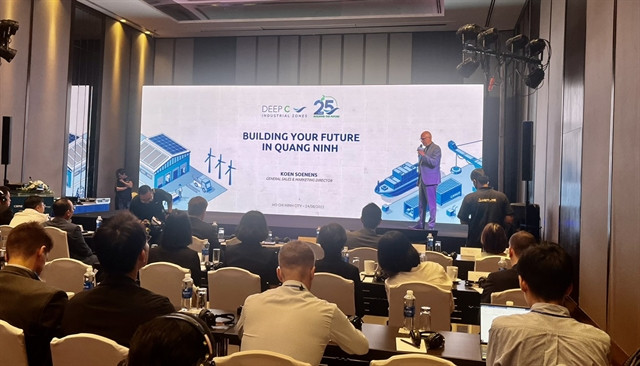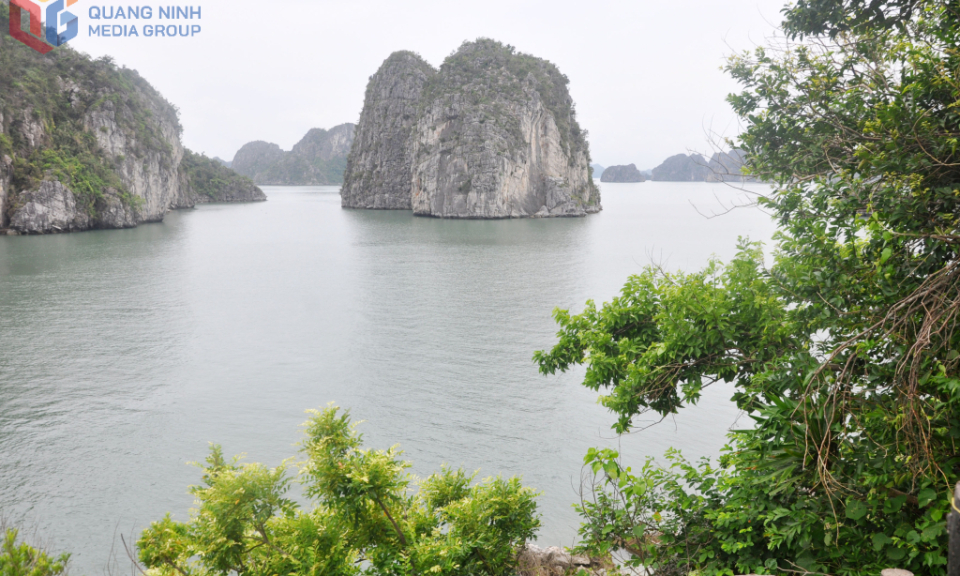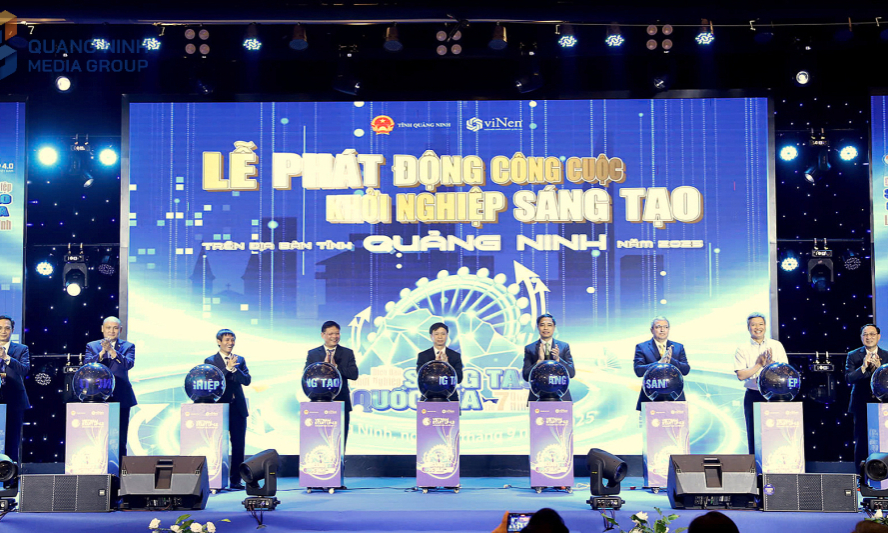Quảng Ninh Province emerges as new manufacturing hub
Quảng Ninh has emerged as a new manufacturing hub in northern Việt Nam by transforming its rural tourism-based economy and industrialising to attract foreign investments, especially in the tech sector, experts said.
Speaking on Wednesday in HCM City at a conference held to promote investment in the north-eastern province, Châu Thành Hưng, deputy head of the Quảng Ninh Economic Zone Authority, said the province's economy has gradually shifted, with the services and industrial sectors increasing their share at the cost of agriculture.
The province has a strategic geographical location, and serves as a gateway connecting Việt Nam with China and Southeast Asia, he said.
It has extensive transport infrastructure with an international airport, seaports, the Móng Cái international border gate and modern facilities.
It is home to major economic zones such as Quảng Yên, Vân Đồn and Móng Cái and 15 industrial parks (IPs). Another eight IPs are expected to be built in future.
It possesses the longest highway network in the country, linking it with Hà Nội and Hải Phòng port city and onward to northern Việt Nam and southern China, he said.
It has sped up construction of the Vân Đồn - Móng Cái expressway to reduce the time to the Chinese border to 50 minutes from two hours when it opens to traffic next month, he said.
Quảng Ninh is also focused on administrative reforms and improving the business climate and competitiveness, he added.
Seaport-industrial park complexes
To leverage its geographically advantageous location, Quảng Ninh is developing seaport-IP complexes starting with the Bắc Tiền Phong Industrial Zone and Nam Tiền Phong Industrial Zone in the Quảng Yên Coastal Economic Zone.
The seaports there will connect directly with the Lạch Huyện deep seaport in Hải Phòng port city.
These port-IP eco-systems will help reduce logistics costs for manufacturers, promote a sea-based economy in the Quảng Yên Coastal Economic Zone and are key to improving Quảng Ninh’s competitiveness.
Koen Soenens, general sales and marketing director of the DEEP C Industrial Zones in Quảng Ninh Province, said since logistics costs in Việt Nam are extremely high, it is imperative to develop an industrial zone that fits an array of industries and has excellent connectivity.
Young labour force
Quảng Ninh has an abundant and young workforce, with those aged between 15 and 64 years accounting for 67 per cent, and high labour productivity, according to employment firm Navigos Group.
The labour structure is expected to shift from sectors such as agriculture and tourism to manufacturing, it said.
The quality of labour has gradually improved in recent years, it added.
Demand is expected to rise significantly as more manufacturers are likely to set up shop in the province in the next few years.
The Quảng Ninh Economic Zone Authority issued investment licences to Indochina Kajima Development for its $23.9 million Core5 Quảng Ninh ready-built factory project.
Quảng Ninh has been among the top five in the competitiveness index (PCI) rankings for nine consecutive years since 2013.
As of the end of June, it had 150 FDI projects worth $8.26 billion by investors from 20 countries and territories.
In 2021, despite the pandemic, the province maintained double digit growth rate of 10.28 per cent and ranked second only to Hải Phòng City.
The conference was organised by DEEP C Industrial Zones, the Quảng Ninh Economic Zone Authority, Quảng Ninh Investment Promotion Agency, CBRE, and Navigos Group.






